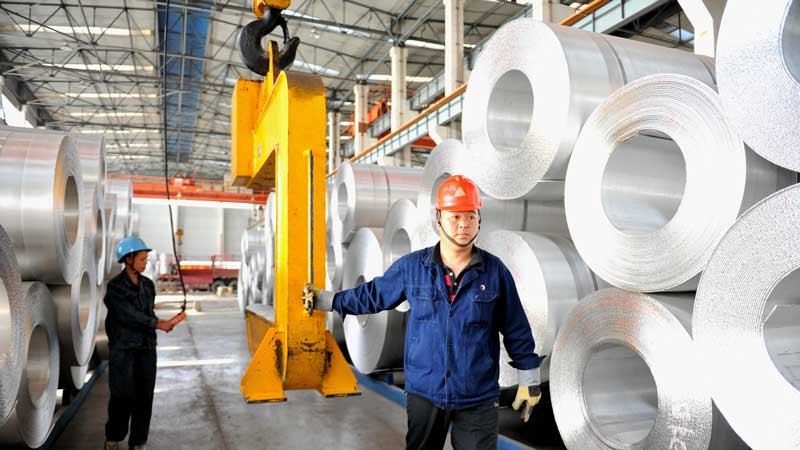While the Industrial Revolution was promising better literacy for the modern people, advertising and showcasing how it was increasing our ability to better read the “Book of Nature”, the leaders of the new mechanical age realized that the metal that made their world (Iron) lacked certain qualities.
It was not perfect.
This became apparent when we moved from the “horse-carriage” age to that of automobiles and mass consumerism.
One wonders why the leaders did not realize what their reading classes at the industrial plants were pumping into the environment. We only realized climate change in the environment after a hundred years.
But this post is about industrial grade Aluminum and what makes it the universal choice for so many industries.

What Every Perfect Material Should Like
So, what would the perfect material be for our new age? Obviously its properties would be defined by the new production line developed in USA and its inherent values of increasing marginal utility for the industry.
First and foremost, the material should be relatively inexpensive and plentiful. The engineers stepped in and claimed: It should be light-weight, strong, resistant to corrosion and heat, and should be a good conductor for electricity. And ofcourse, because we love to experiment, it should readily combine with other materials.
That material was aluminum, the third most plentiful element on the planet.
Now it’s the second most popular metal for creating things (right after steel/iron). It is so predominant that most of us use it every day without thought (and also because of smartphones and social media).
What Makes Aluminum the Choice for So Many Industries?
Aluminum offers the following properties that grant it such universal acceptance:
1. Durability — Aluminum offers a high strength to weight ratio. Hence for every unit of weight, aluminum is known to absorb nearly twice the strain/stress compared to steel.
2. Corrosion Resistant — Aluminum naturally forms an extremely thin layer of oxide by reacting with the atmospheric oxygen. The layer provides excellent corrosion protection, and is self-repairing! If damaged, the aluminum reacts to recreate it.
3. Malleability — Aluminum easily combines with other metals without reacting with them, making it a great metal for creating alloys that are stronger than it.
4. Formability — Aluminum can be molded and worked into innumerable shapes with ease. This allows aluminum sheets and foils to be easily used to a diverse range of shapes. Coupled with its inertness to corrosion, resistance to heat, and durability, aluminum has made its way into around the globe as aircrafts and automobiles, and as toasters, watches, and other household items.
5. Conductivity — Aluminum weighs half as much as copper while offering excellent conductivity for heat and electricity. Hence it has become the choice for heat sinks in electrical and electronic components, overhead wires, and within electronic circuitry.
6. Ease of recycling — Aluminum is one of the most inert metals on the planet. This property prevents it from readily and permanently bonding with other materials. This makes it easier to separate aluminum from other components, making it a highly environmental friendly metal.
7. Energy efficiency — Molding aluminum takes a significantly less amount of energy. For example, using aluminum to replace steel in traditional vehicles is expected to saves the equivalent of 108 million barrels of crude oil in energy!

Contact: Yumtou
Whatsapp: +8618538515831
Email: andy@yumtou.com
Add: Zhengzhou City, Henan Province, China